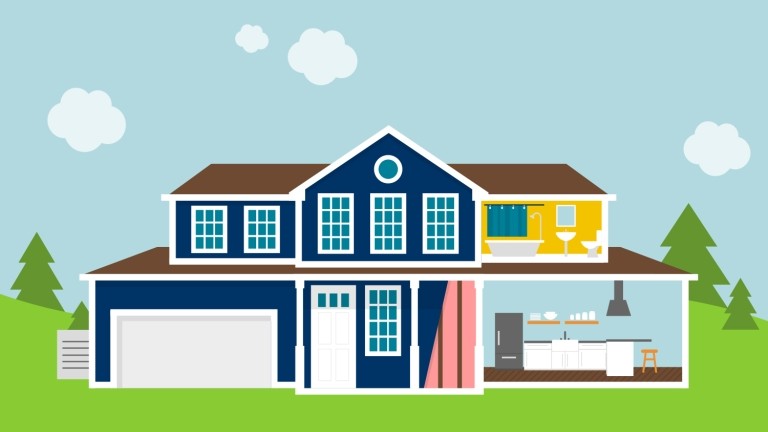FHA Loans: making home ownership a reality for more Oregonians
A Federal Housing Administration (FHA) mortgage is a loan from a qualified private lender, like OCCU, that is insured by the FHA. Borrowers with this type of loan pay for mortgage insurance from the FHA that protects the lender from loss if for some reason you can no longer pay on your mortgage. This insurance allows lenders to offer FHA loans with a lower down payment than some other conventional loans allow, and also gives borrowers with lower credit scores an avenue to home ownership. This makes an FHA loan particularly attractive to people who are ready to purchase a home, but haven’t had the financial options to save up a substantial down payment, or who don’t have a perfect credit history.
The amount of the down payment required for an FHA loan does depend on your credit score, but because these loans are insured by the federal government, your credit score and down payment can both be lower than with conventional loans. For instance, the FHA allows first-time homebuyers to make a down payment as low as 3.5 percent, but to qualify, you must have a credit score of 589 or higher. If your credit score is between 500 and 579, your down payment must to be at least 10 percent. Even if your credit score is lower than 500, you may still qualify for a loan, because the FHA makes some exceptions for a nontraditional credit history and offers alternatives to establishing a borrower’s history of creditworthiness.
The FHA also makes other allowances that help potential home buyers. They recognize that closing costs, appraisals, credit reports and title fees all come at an extra cost to buyers and can add a financial burden that can make homeownership more difficult. Therefore, the FHA allows home sellers, builders and lenders to pay some of those costs if they choose to—up to 6 percent of the total sale price may be contributed to closing costs. Furthermore, the FHA realizes that borrowers sometimes have financial hardships that make it difficult to keep up their mortgage payments. If you find yourself in such a situation and you have an FHA-insured loan, loan officers can sometimes offer temporary forbearances or loan modifications that will help you past the rough spot.
There are several FHA mortgage programs available, including fixed-rate, fully amortizing loans like our popular 15- and 30-year fixed-rate mortgages. You can also get adjustable-rate mortgages (ARM), refinancing loans, reverse mortgages, loans for home repairs, and more. These loans have all been designed for moderate-income families who are ready to be homeowners, but need a little help in getting there.
Is an FHA loan right for you?
Because an FHA loan is insured, lenders are not restricted by the qualifying guidelines of traditional conventional loans. This allows lenders to make exceptions that they couldn’t otherwise make. If, for instance, you’re ready for homeownership and have a good credit score, but have only a small down payment, an FHA loan may give you a very viable path to purchasing your dream home. This type of loan is also ideal for people who don’t have a traditional credit history, or whose credit score is less than 680. It can open doors for buyers who have experienced foreclosure in the past, or whose credit has been affected by life-altering events like divorce, catastrophic accidents, or illnesses.
Conventional loans have stricter qualifying guidelines regarding how long you’ve been employed in the same field, payment-to-income ratios, and other factors. If, however, you meet these guidelines, and you have a credit score over 680, and you have money set aside for a somewhat larger down payment, a conventional loan is probably a better option for you. If you have at least 20 percent of the purchase price for a down payment, you won’t have to pay mortgage insurance, which saves you money in the long run. Also, if you qualify for the best fixed-rate, fully amortizing mortgages, you can spread your payments out over many years in order to get the lowest possible monthly payments. This gives you more flexibility and control over how and where you invest in your home. Alternatively, you can opt to take a shorter term loan and pay off your home faster, with less interest.
Learn more about FHA loans
To get additional information about FHA Mortgages, and to find out whether it’s your best path to homeownership, we invite you to sit down with one of our mortgage team. They understand that you may not have a traditional credit history or a perfect credit score, and they’ll work with you to find solutions within your budget. They’re here to make sure you understand all the ins and outs of getting your home loan, including the extra costs like mortgage and home insurance, and taxes.
Learn more about the terms of our FHA mortgage options.


